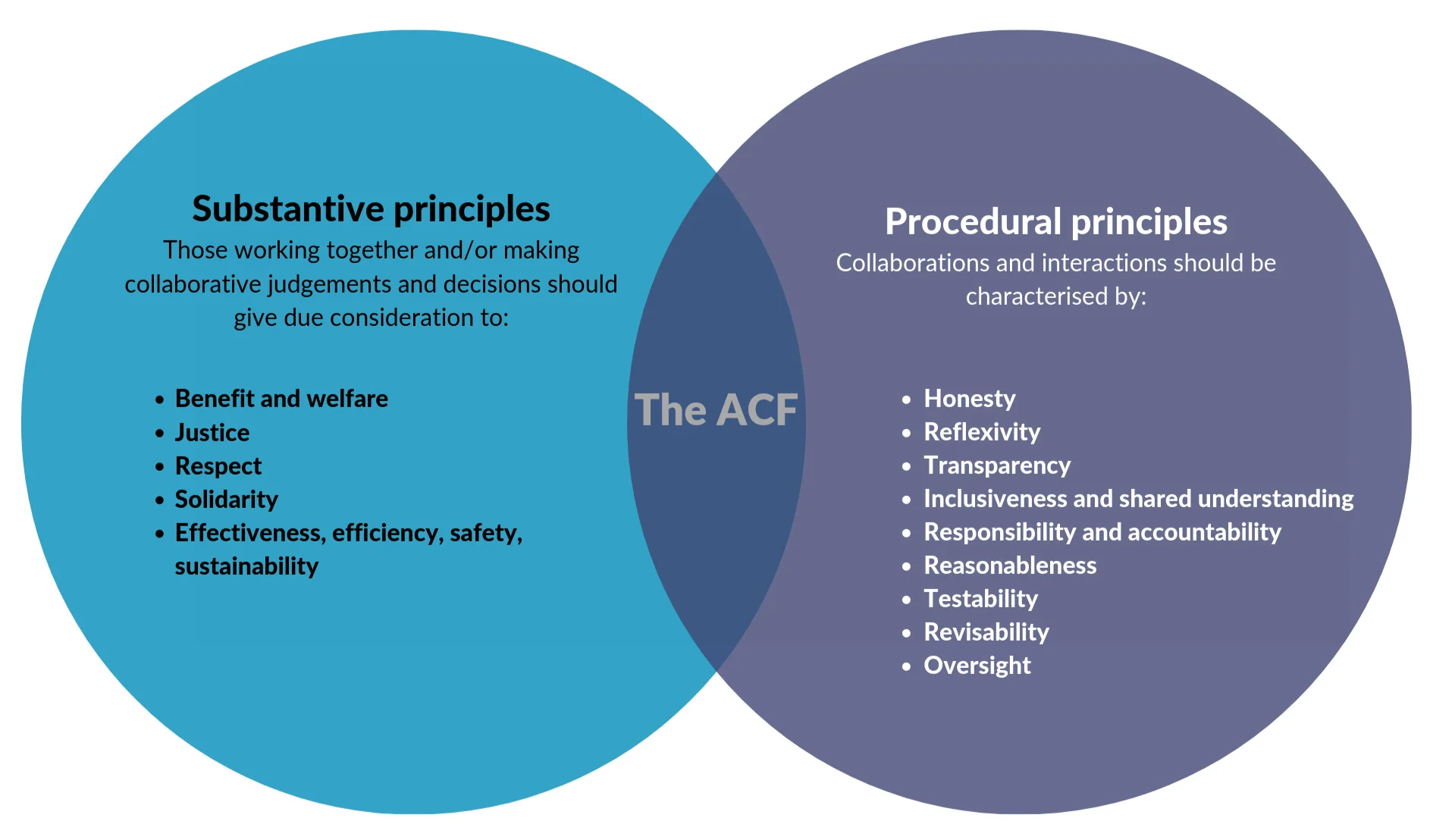Framework principles
AEHA member organisations have agreed to a simple yet effective set of ethical principles that are categorised as follows and included as part of the ACF:
Substantive Principles
Procedural Principles.
SUBSTANTIVE PRINCIPLES
Those working together and/or making collaborative judgements and decisions should give due consideration to:
Benefit and welfare: Acting in ways that advance the health, wellbeing and interests of patients, consumers, communities, populations, healthcare systems and the healthcare sector, and that avoid or minimise harm.
Justice: Fair distribution of access, opportunities, and privileges, and reduction of sociopolitical and economic inequity. Justice also refers to fairness in the processes that allocate resources and resolve disputes.
Respect for patients, consumers, communities, students, educators, colleagues and organisations: All interactions and activities are respectful of the dignity, worth, rights, beliefs, values, preferences, customs and cultural heritage of all involved.
Solidarity: A collective commitment to equitably sharing costs and benefits for the good of a group, community, nation or global population.
Effectiveness, efficiency, safety, sustainability: Continuous commitment to improving outcomes in healthcare through promotion of responsible innovation, generation and utilisation of evidence, economic cooperation, reduction of waste, and productive utilisation of limited resources.
PROCEDURAL PRINCIPLES
Collaborations and interactions should be characterised by:
Honesty: Those engaged in collaborations are truthful in all their interactions.
Integrity: Those engaged in collaborations are alert to competing and conflicting personal, professional and organisational interests and to the management of bias.
Reflexivity: There is ongoing critical reflection on the values, principles and evidence underpinning collaborative judgments and actions.
Transparency: The processes of collaboration, and the values, principles and evidence upon which decisions are made, are open to scrutiny.
Inclusiveness and shared understanding: All relevant stakeholders should participate in collaborations in order to learn from one another and work together respectfully to generate mutually agreed outcomes.
Responsibility and accountability: Those involved in collaborative processes take responsibility for, are able to explain, and are accountable for, their actions and decisions.
Reasonableness: Those involved in collaborations act, and make decisions, on the basis of rationales that are widely accepted as relevant and fair.
Testability: The judgments and decisions made by those engaging in collaboration are open to independent verification and revision.
Revisability: There are procedures in place for appeals and for revising collaborative judgments and decisions in the light of challenges to them.
Oversight: There are mechanisms in place to ensure that the principles described above are given due consideration.

